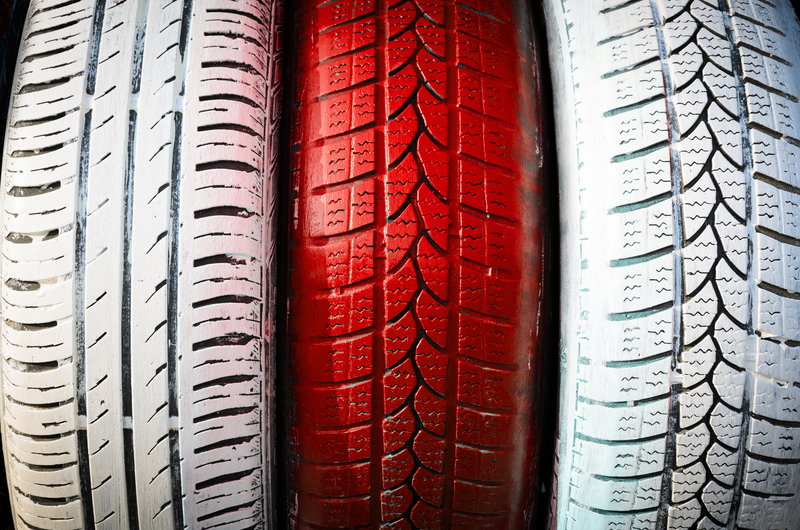Why Builders Skips Are Vital for Waste Management
In today's fast-paced construction environment, effective waste management plays a pivotal role in keeping job sites safe, organized, and eco-friendly. Among the most popular and efficient solutions for handling waste in the construction industry are builders skips. From small renovation projects to large-scale building developments, skips provide an essential service that goes far beyond just waste containment. This comprehensive article explores why builders skips are vital for waste management, highlighting their benefits, usage varieties, environmental implications, legal considerations, and tips for making the most of your skip hire.

Understanding Builders Skips: What Are They?
A builders skip is a large, open-topped container engineered to withstand heavy loads of construction debris, rubble, and other waste materials. These skips are especially common on building sites, where waste generation is high and the need for systematic waste removal is critical. Builders skips differ in size but typically range from 6 to 8 cubic yards, making them ideal for commercial construction projects, home renovations, landscaping undertakings, and major cleanouts.
Key Features of Builders Skips
- Sturdy and Durable: Built with reinforced steel, capable of handling weighty and abrasive construction debris.
- Variety of Sizes: From mini skips (2-3 yards) to extra-large skips for major projects.
- Easy Loading: Designed with open tops or drop doors for simple waste disposal, often with access for wheelbarrows.
- Convenient Collection: Waste management companies handle drop-off and collection, saving you time and effort.
Why Builders Skips are Essential for Effective Waste Management
Efficient waste management is not only about keeping the site tidy but also about workplace safety, legal requirements, and environmental responsibility. Builder's skips for waste management address all these needs seamlessly.
1. Promoting Health and Safety on Site
A cluttered construction site poses risks such as trips, falls, and injuries caused by scattered debris. By providing a centralized waste disposal point, builders skips help to minimize these hazards and improve overall safety. Keeping waste contained and out of pathways also facilitates easier and safer access to different site areas.
- Reduces risk of accidents: Containment minimizes trip hazards and dangerous obstructions.
- Improves workflow: Clear workspaces let your team work efficiently.
2. Supporting Environmental Sustainability
Construction accounts for a significant portion of global waste. Builder's skips play a pivotal role in diverting as much waste as possible away from landfill by making it easier to separate, contain, and recycle various materials. Many waste management companies now provide sorting and recycling services once the skip is collected, further bolstering green practices on building sites.
- Encourages recycling: Skips make it simple to segregate recyclable materials, such as metal, wood, concrete, and plastics.
- Reduces carbon footprint: Systematic waste disposal reduces unnecessary transport and landfill use.
- Prevents illegal dumping: Skips provide a legal means of disposal, reducing fly-tipping.
3. Ensuring Regulatory Compliance
UK regulations, such as the Waste (England and Wales) Regulations 2011, require that waste producers--including builders and contractors--manage waste responsibly. Builder's skips for waste management make it easier to comply with these laws, ensuring proper storage, transportation, and disposal. Failure to comply can result in hefty fines and potential legal action.
- Complying with local authority rules: Many sites need licensed skips for regulated waste removal.
- Easy documentation: Professional skip hire often includes waste transfer notes.
- Preventing environmental harm: Proper skip use avoids pollution and contamination of local ecosystems.
4. Enhancing Efficiency and Cost-Effectiveness
Handling waste in a disorganized fashion is time-consuming and often expensive. By consolidating waste into a single container, builders skips significantly improve project efficiency.
- Saves on transport: Fewer trips to the dump reduce fuel and labor costs.
- Aids project planning: Regular skip collections keep the site moving smoothly.
- Flexible sizing: Hire the right skip for your project, reducing overspending on waste solutions.
Varieties and Uses of Builders Skips for Waste Management
One reason builders skips are so essential is their versatility. They're used for many forms of waste generated across domestic, commercial, and industrial projects.
Common Types of Waste Collected in Builders Skips
- Rubble and concrete: Broken bricks, blocks, and slabs are heavy and best suited for sturdy skips.
- Wood and timber: Old joists, floorboards, shutters, and pallets.
- Metals: Off-cuts from plumbing, structural steel, and wiring.
- Plastic and packaging: Sheeting, insulation, containers, and wrapping materials.
- Soil and green waste: For landscaping and groundworking jobs.
- General mixed construction debris: Sweeping up leftovers from all stages of building work.
Choosing the Right Size Builder's Skip
- Mini/Small builders skips (2-4 cubic yards): Perfect for small refurbishments or clear-outs.
- Medium builders skips (6-8 cubic yards): Industry standard for most building sites and home renovation projects.
- Large builders skips (10-12 cubic yards): Best for major demolitions or commercial construction jobs with high waste output.
Selecting the right size optimizes costs and ensures you always have sufficient space for efficient waste storage and removal.
Builders Skips and the Circular Economy
A circular economy is one where products, materials, and resources are reused, repaired, and recycled to minimize waste. Builders skips for waste management play a strategic role in this model, acting as the first step towards organized recycling and responsible resource use.
Key Circular Economy Benefits of Builders Skips
- Segregation of recyclable waste: Skips make it easier to collect and segregate waste streams.
- Facilitating materials recovery: After collection, waste can be processed and raw materials salvaged for future use.
- Reduction of landfill reliance: More recycling means less landfill use, reducing environmental impact.
Legal and Environmental Considerations When Using Builders Skips
Proper Placement and Licensing
- Permit requirements: If you need to place the skip on a public road or space, a council permit may be mandatory.
- Hazardous waste restrictions: Not all waste types (e.g., asbestos, chemicals, batteries) are allowed in builders skips. Always check local regulations.
- Traffic and safety: Ensure skips are placed to avoid blocking access, traffic, or emergency routes--often a requirement under health and safety law.
Responsible Waste Disposal
- Use licensed waste carriers: Always hire from registered skip providers to guarantee legal and responsible waste processing.
- Documentation: Keep hold of any documentation, such as waste transfer notes, for legal and auditing purposes.
- Environmental protection: Ensure skips are not overloaded or overfilled, which can cause littering and pollution.
Tips for Maximizing the Benefits of Builders Skips
- Plan ahead: Estimate the volume of waste your project will create to choose the right skip size and schedule collections.
- Segregate waste at source: Use separate skips for recyclables vs. general waste to streamline recycling efforts.
- Don't overload: Filling skips beyond the 'load line' is illegal and unsafe. Overfilled skips may not be collected.
- Keep hazardous materials out: Separate disposal arrangements are needed for batteries, chemicals, fridges, and other hazardous items.
- Educate your team: Make sure everyone on site knows what can and can't be put in the skip to avoid contamination.

How to Choose the Right Builders Skip Company
The effectiveness of your waste management plan depends largely on the reliability of the skip hire service you choose. Here are some crucial factors to consider:
- Licensing and compliance: Ensure the provider is certified and meets local environmental standards.
- Wide range of skip sizes: More options allow for better project-specific customization.
- Prompt delivery and collection: Delays can cause project bottlenecks and site safety risks.
- Transparent pricing: Get clear quotes and understand what's included in your package.
- Recycling commitment: Leading providers should divert as much waste as possible away from landfill and provide recycling statistics.
Conclusion: The Indispensable Role of Builders Skips in Modern Waste Management
Builders skips are vital for waste management in the construction industry and beyond. They enable efficient, safe, and environmentally compliant handling of waste materials, helping businesses meet legal obligations and embrace sustainability. With flexible sizing, robust construction, and support for recycling practices, these skips are an indispensable tool for any construction or renovation project, ensuring that materials are disposed of responsibly and efficiently.
Whether you're a professional builder, a renovator, or a homeowner planning a major clear-out, integrating builders skips into your waste management plan is a smart move. Not only do they keep your project organized and safe, but they also have a lasting positive impact on your business's environmental footprint. Make the right choice for your next project and experience firsthand why builders skips are crucial for waste management in our modern world.